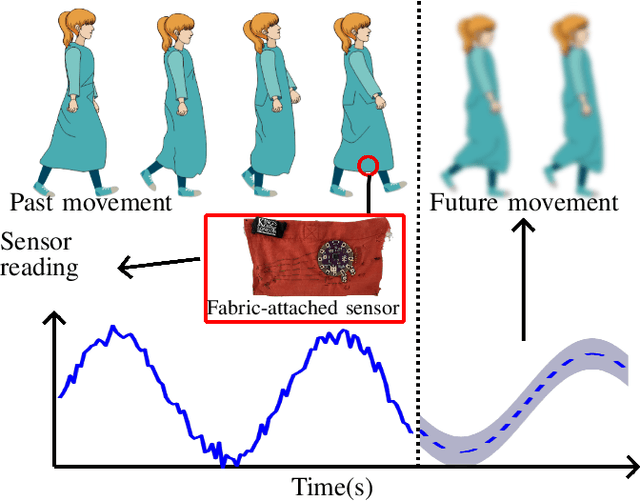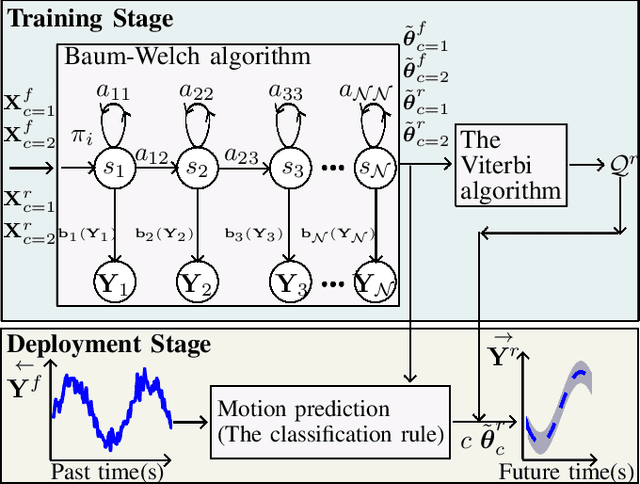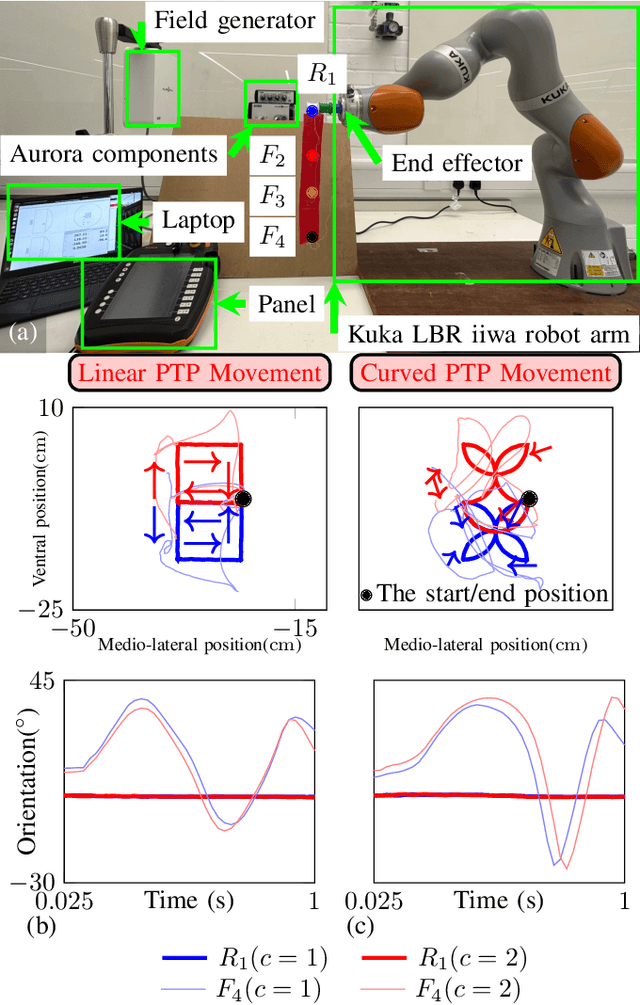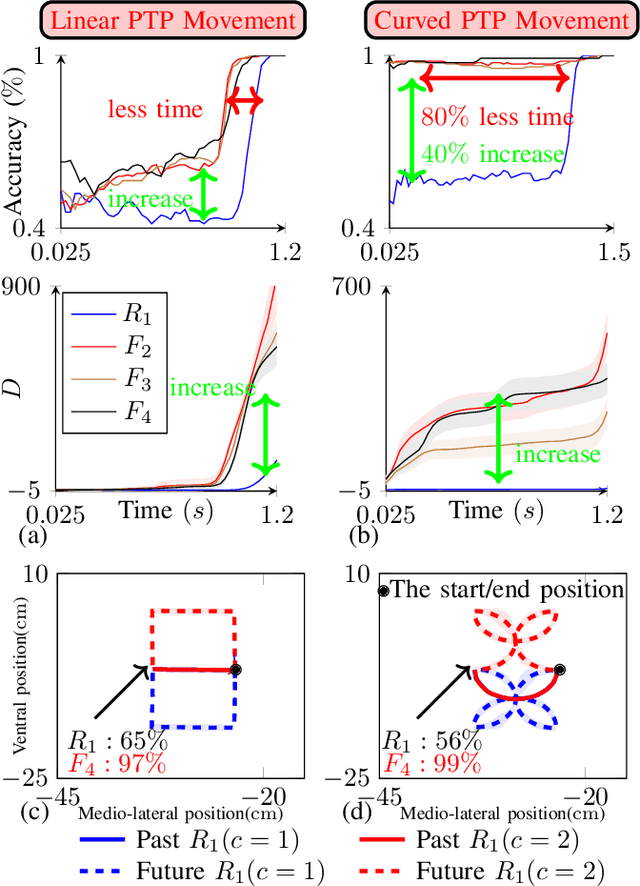Trajectory Forecasting with Loose Clothing Using Left-to-Right Hidden Markov Model
Paper and Code
Sep 17, 2023



Trajectory forecasting has become an interesting research area driven by advancements in wearable sensing technology. Sensors can be seamlessly integrated into clothing using cutting-edge electronic textiles technology, allowing long-term recording of human movements outside the laboratory. Motivated by the recent findings that clothing-attached sensors can achieve higher activity recognition accuracy than body-attached sensors, this work investigates motion prediction and trajectory forecasting using rigid-attached and clothing-attached sensors. The future trajectory is forecasted from the probabilistic trajectory model formulated by left-to-right hidden Markov model (LR-HMM) and motion prediction accuracy is computed by the classification rule. Surprisingly, the results show that clothing-attached sensors can forecast the future trajectory and have better performance than body-attached sensors in terms of motion prediction accuracy. In some cases, the clothing-attached sensor can enhance accuracy by 45% compared to the body-attached sensor and requires approximately 80% less duration of the historical trajectory to achieve the same level of accuracy as the body-attached sensor.
 Add to Chrome
Add to Chrome Add to Firefox
Add to Firefox Add to Edge
Add to Edge